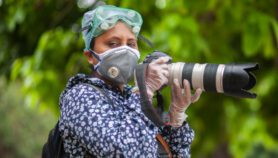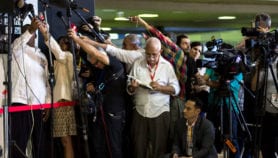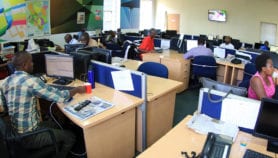By: Charles Mkoka
Send to a friend
The details you provide on this page will not be used to send unsolicited email, and will not be sold to a 3rd party. See privacy policy.
[LILONGWE] Malawian journalists have launched a network to promote home-grown science reporting, which they see as central to their country’s socio-economic development. Science has had minimal coverage in Malawi until now.
The Coalition of Journalists on Environment and Agriculture (COJEA) has been created to help fill what its chairperson, Raphael Mweninguwe, sees as a widening gap in Malawian journalism.
COJEA will make training available to journalists in science-related aspects of some of the country’s key development issues. It will also offer forums, group discussions, exchange programmes with other networks regionally and internationally, and field trips for journalists to areas of prime scientific interest, or where research of national importance is being done.
"It is of paramount importance that science journalists acquaint themselves [with their subject] in order to report professionally," Mweninguwe told SciDev.Net.
By promoting both the discussion of science, environment, agriculture and food security issues and the dissemination of information to the public, COJEA aims to enable Malawians to make informed decisions about issues affecting them. These include the development of new biotechnologies to enhance food security and the elimination of pollutants such as the widely used pesticide methyl bromide, which is an ozone-depleting substance (see Malawi on course to phase out harmful pesticide).
"The rapidly growing population needs to be constantly updated on developments taking place in the world of science," says Mweninguwe, adding that without good science reporting the population cannot make informed choices about their own actions in relation to the environment.
Currently there is no science publication produced by professional journalists in Malawi, but the network aims to fill the gap. Their magazine, The Green Environment, will focus specifically on science and development and be available to the general public as well as members.
Two existing publications, The Zambezi and SADC Today, do cover issues such as climate change and biodiversity conservation at regional level. But they are produced by the Southern Africa Research and Documentation Centre (SARDC) in Zimbabwe, and are not always available in Malawi because of funding problems.
"It is about time journalists brought science issues to the masses," says Gray Munthali, deputy director of meteorological services in Malawi.
Munthali says that media reports of floods, droughts and other climatic events in Malawi have become inaccurate, creating a need for more balanced reporting. He hopes that COJEA will promote the communication of meteorological information accurately and in a way the general public will be able to understand.
"COJEA is a move in the right direction," says Hassan Nkata, a journalist with the national radio station, the Malawi Broadcasting Corporation (MBC). Nkata hopes that COJEA will mean that more information on the role of science in development can reach rural Malawians through the MBC’s radio listening clubs.
COJEA aims to have a regional scope, monitoring developments in and seeking members from the 14 countries of the Southern Africa Development Community. The current membership of about 30 is expected to rise after the coalition’s official registration as a non-governmental organisation.













